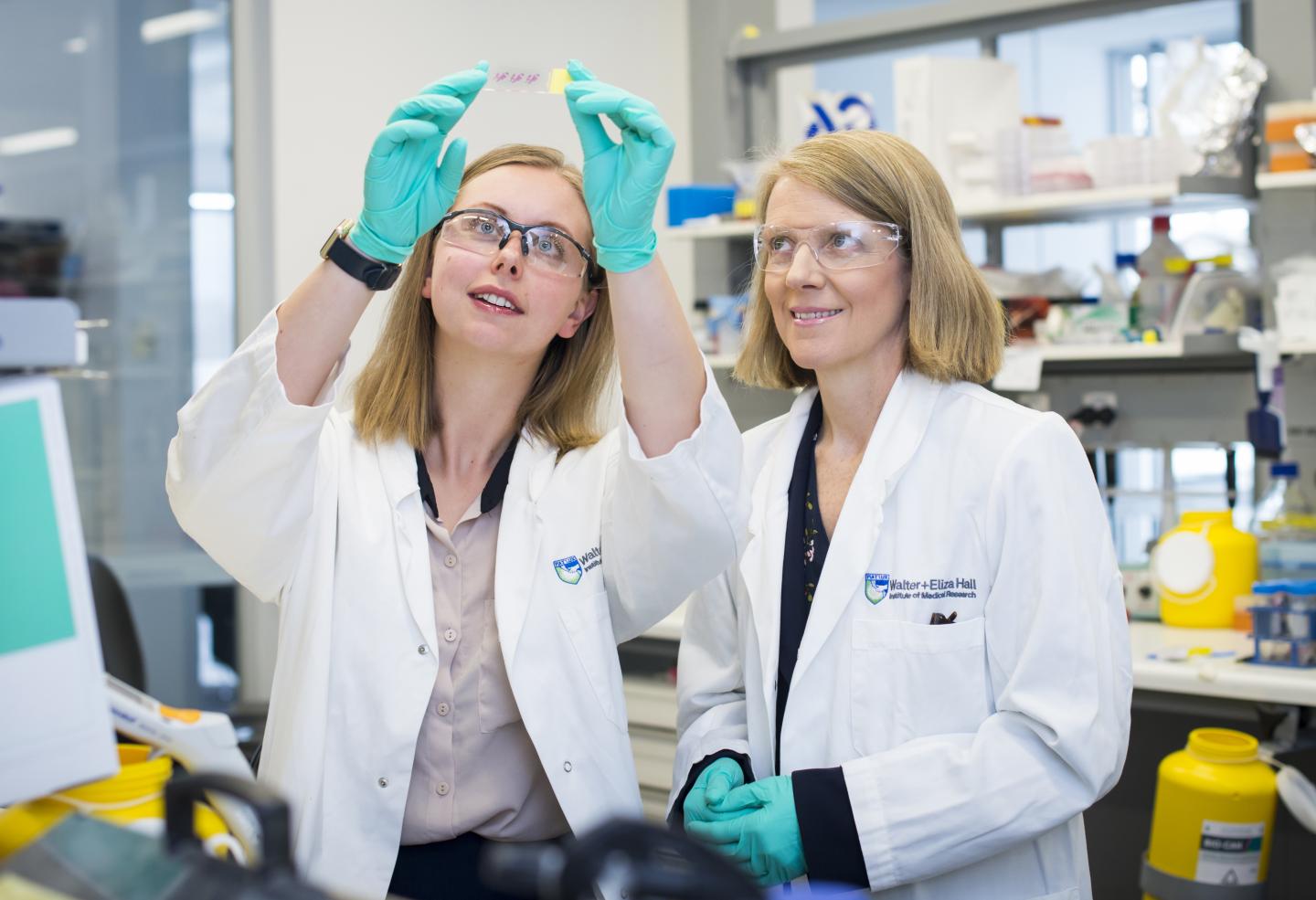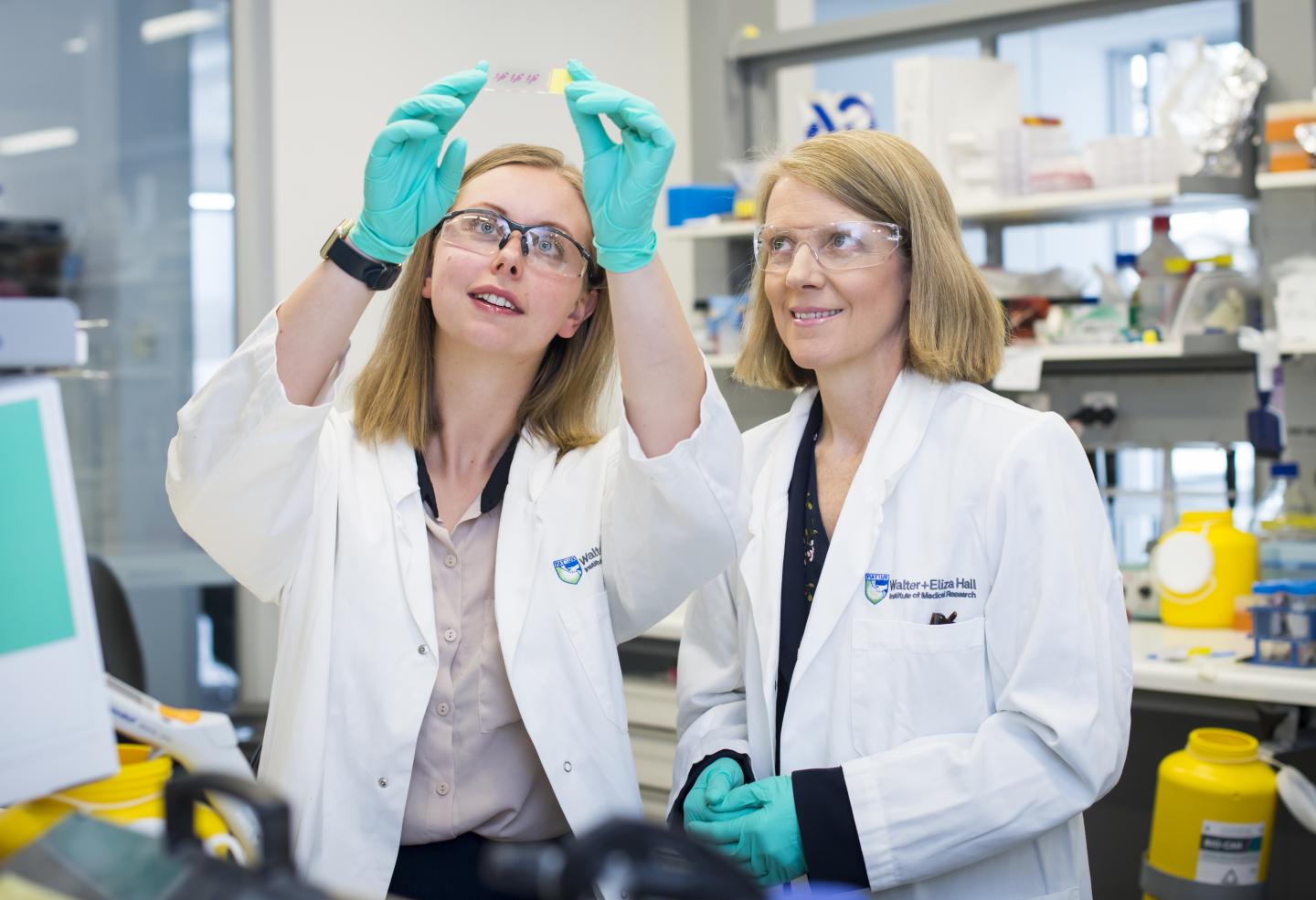
Credit: Walter and Eliza Hall Institute.
Australian scientists have revealed a better way to identify which patients should respond to powerful ovarian cancer drugs called PARP inhibitors (PARPi), resolving an important question in ovarian cancer care about why some patients respond to these drugs, while others do not.
The findings add to a vital 'checklist' that helps to match ovarian cancer patients with the right therapy for their cancer. Being able to offer targeted treatment is crucial for patient survival rates which have seen little improvement over the past 30 years.
The study, published today in Nature Communications, was led by Professor Clare Scott, Dr Olga Kondrashova, Dr Matthew Wakefield and Dr Monique Topp from the Walter and Eliza Hall Institute; in collaboration with Associate Professor Alexander Dobrovic from the Olivia Newton-John Cancer Research Institute and LaTrobe University School of Medicine.
Subtle yet significant differences
Professor Scott said it was well documented that PARPi could only work when the cancer's DNA repair process wasn't functioning as it should.
"For the past two decades, it was thought that ovarian cancer patients whose cancer's BRCA1 genes are 'silenced' – or methylated – have faulty DNA repair and therefore were good candidates for PARPi treatment.
"Yet the puzzling thing was we were unable to predict the patients for which the drugs would work," she said.
Dr Kondrashova said the 'Eureka moment' came when the researchers discovered subtle differences in some BRCA1 methylated cancers. These subtle yet significant epigenetic differences explained why some patients would respond to the drug, while others would not.
"It was suddenly clear that all patients in the group could not be treated the same way. We discovered that some of the patients had what could be described as 'incomplete' BRCA1 methylation where not every gene copy was 'switched off'.
"As it turns out, incomplete methylation isn't enough to cause faulty DNA repair in cancer cells which explains why PARPi isn't going to be effective for these patients," she said.
"At the same time, those in the group who had 'complete' BRCA1 methylation in their cancer were responsive to PARPi confirming to us that the treatment should not be discounted," Dr Kondrashova said.
'Snap shots' at key points
Professor Scott said the findings were a result of quality data sets and sophisticated laboratory models called patient derived xenografts (PDX models).
"PDX models are powerful because they mimic the complexity of human tumours at key stages as the cancer progresses.
"Our models are developed with cancerous tissue donated by patients from the Royal Women's Hospital, the Royal Melbourne Hospital and the Peter Mac at the time of their cancer diagnosis, or prior to and after treatment with PARPi" she said.
"Like 'snap shots' in time, PDX models allow us to accurately track how each patient's cancer is changing or responding to treatment. The success of this approach shows that a long-term, detailed analysis is invaluable for providing better patient care," she said.
No 'one size fits all'
Professor Scott said understanding the various reasons for PARPi resistance was vital for developing better, more personalised patient care.
"There is no 'one size fits all' approach for ovarian cancer care. We need to keep making these strides in understanding so we can better match patients with the right treatment for their cancer," she said.
###
The research was conducted in affiliation with the University of Melbourne and was funded by the Cancer Council Victoria Sir Edward Dunlop Research Fellowship, the Stafford Fox Medical Research Foundation, the Victorian Cancer Agency, Cancer Australia, the National Breast Cancer Foundation, and the National Health and Medical Research Council.
Media Contact
Arunee Wilson
[email protected]
61-575-751-811
@WEHI_research
Original Source
https://www.wehi.edu.au/news/discovery-paves-way-improved-ovarian-cancer-care





